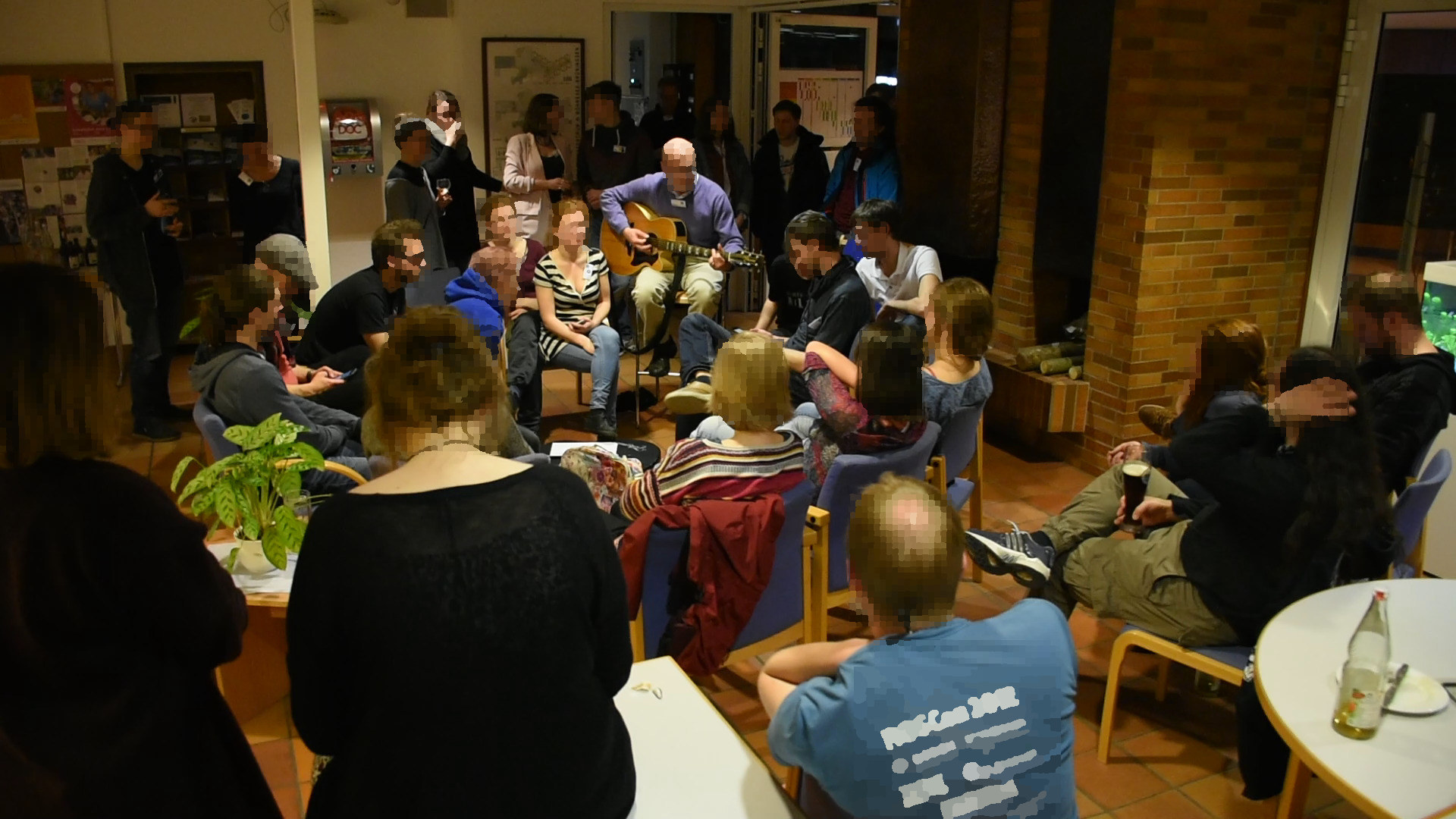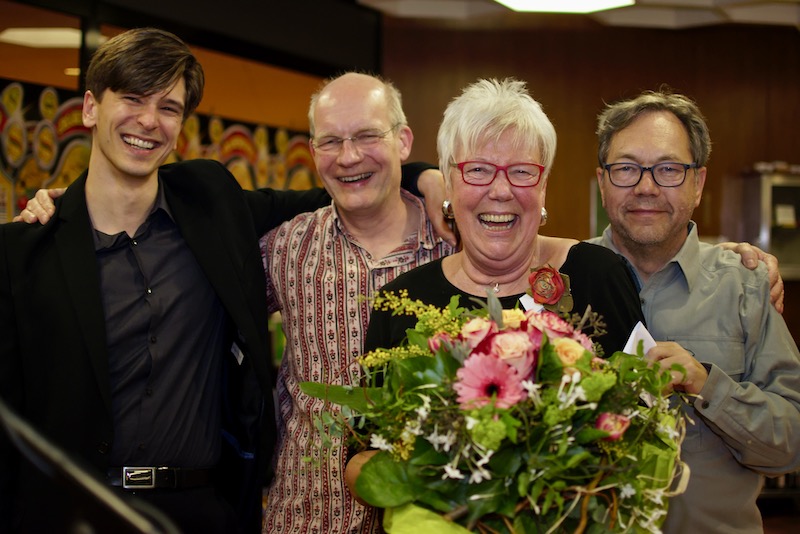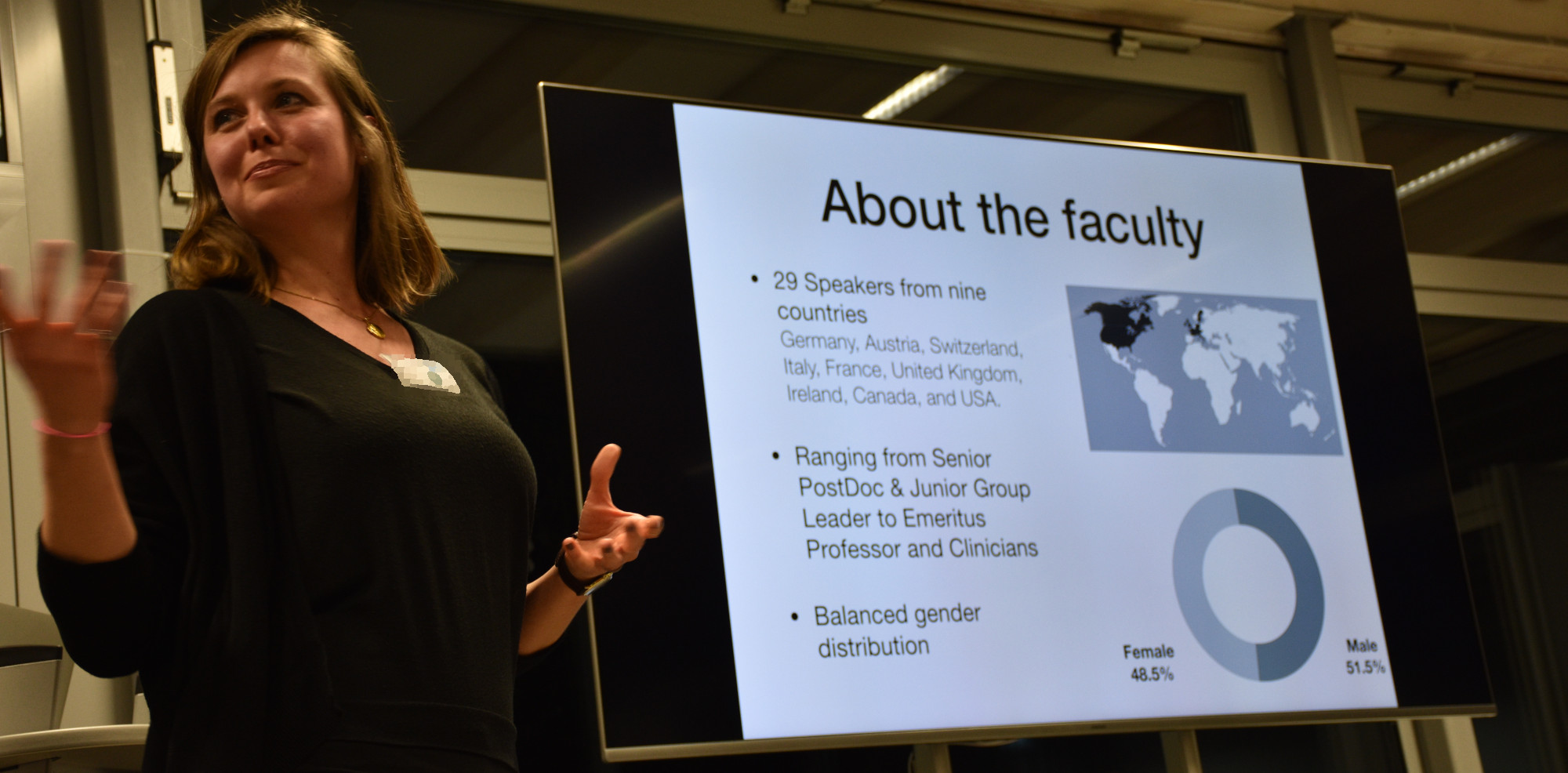- Mission Statement
- The history of IK
- Organization
- Executive Committee
- Advisory Board
- Conference Management
Mission Statement
How does cognition arise in brains? What kinds of intelligence can be created in machines? How can communicating agents bind together in social behavior? These questions have become dramatically acute through the recent AI revolution. Answering them calls for a joint effort across many disciplines: the cognitive and neurosciences; machine learning, AI and robotics; computer science and mathematics; artificial life, evolutionary biology and ethology; linguistics; complex systems science; social sciences, medicine and philosophy. In a yearly spring school, the IK offers an array of intense courses given by international lecturers at the frontiers of these fields. Our aim is to open the minds of early career researchers and enlarge the horizon of established professionals, creating new insights in the spirit of an interdisciplinary community.

The history of IK
The IK evolved from the former ‘Artificial Intelligence Spring School’ (KIFS), which took place almost annually from 1982 to 1996, and contributed significantly to the development of AI in Germany. Since the beginning of the 1990s, AI had been well established in German universities and the mission of the KIFS had been fulfilled. It was time for a comprehensive departure into interdisciplinarity. This venue was paved out by several events, especially by two workshops “Wege ins Gehirn” (Paths into the brain) and “Autonomie und Adaptivitaet” (Autonomy and Adaptivity). These non-public workshops were organized by the Federal Ministery of Education and Research and brought together leading scientists in these fields. The final decision to turn the KIFS into the Interdisciplinary College was taken at the first of these workshops in 1996. The IK “movement” has since then been carried on by a body of leading researchers from the concerned disciplines. The IK inherited the charming scenery and the intensity of the KIFS. Since 2003, the IK is held in English. The IK has now been run annually since 1997, each time with overwhelmingly positive feedback from its participants.
In memoriam

Christine Harms was the chief conference manager of IK for 25 years until her passing in 2023. Some of you did not have the chance to meet Christine in person, but those of you who did will agree that she was a remarkable person in many ways. Christine was much more than the leading organizer of our spring school, holding the strings of the event together, making sure that everything went smoothly. Christine was the mother of IK, the Grande Dame, and the heart of IK, all at once. Bringing together scholars and scientists from a large range of academic fields for an interdisciplinary event in one place for one week can be a bit like herding cats. However, Christine was a people person and with her caring and warmhearted way and manner, she had the gift to include everyone wholeheartedly, no matter whether it was a first-time participant, an established professor or a returning alumna. Fortunately, Christine recruited and trained a team of IK managers and administrative helpers to ensure the continual smooth backstage operations behind every IK for the years to come.
Organization
Executive Committee

Simon Büchner (University of Freiburg)
Jennifer Fewell (Arizona State University, USA)
Heike Felzmann (University of Galway)
Magda Gregorova (TH Würzburg-Schweinfurt)
Felix Hülsmann (CLAAS E-Systems GmbH)
Herbert Jaeger (University of Groningen) speaker
Emily King (Colorado State University)
Maike Klein (German Computer Science Society)
Marius Klug (BTU Cottbus-Senftenberg)
Stefan Kopp (Bielefeld University)
Katharina Krämer (Rheinische Hochschule Köln)
Jutta Kretzberg (University of Oldenburg) speaker
Jan Leininger (Ludwigsburg)
Rainer Malaka (University of Bremen)
Benjamin Paaßen (Bielefeld University) speaker
Cosima Prahm (Charité University Medicine Berlin, BG Klinikum Trauma Hospital Berlin)
Constantin Rothkopf (TU Darmstadt)
Anna-Lisa Schuler (Max-Planck Institute for Human Cognitive and Brain Sciences, Tübingen)
Ronald Sladky (University of Vienna) speaker
Jan Smeddinck (Newcastle University)
Terry Stewart (National Research Council of Canada, University of Waterloo Collaboration Centre)
Thomas Stieglitz (University of Freiburg)
Kai Vogeley (University of Cologne)
Philipp Wicke (LMU Munich)
Wanja Wiese (Ruhr Universität Bochum)
Advisory Board
Tamim Asfour (Karlsruhe Institute of Technology)
Ansgar Büschges (University of Cologne)
Jessica Grahn (University of Western Ontario, Canada)
Dieter Jaeger (Emory University, Atlanta, USA)
Arvid Kappas (Jacobs University Bremen, Germany)
Ed Large (University of Connecticut, USA)
Justin London (Carleton College, USA)
Gregor Schöner (Ruhr-University of Bochum)
Luc Steels (Universitat Pompeu Fabra, Spain)
Andrew Straw (University of Freiburg)
Jun Tani (Okinawa Institute of Science and Technology, Japan)
Marieke van Vugt (University of Groningen)
Susan Wache (University of Osnabrück)
Ipke Wachsmuth (Bielefeld University)
Elisabeth Zimmermann (University of Vienna)
Conference Management
Sarah Schulz (Conference Manager)
e-Mail: registration@interdisciplinary-college.org
João M. Cunha
Stefan Riegl
Poster Chairs
Felix Hülsmann (Bielefeld)
Wiebke Schick
Stipend & Sunshine Chairs
Simon Büchner (University of Freiburg)
Jan Leininger (Ludwigsburg)
Alina Deriyeva (Bielefeld University)
Moonlight Chair
Lio Franz (Osnabrück)
Technical Directors
Jochen Sprickerhof (Munich)
Michael Görner (University of Hamburg)